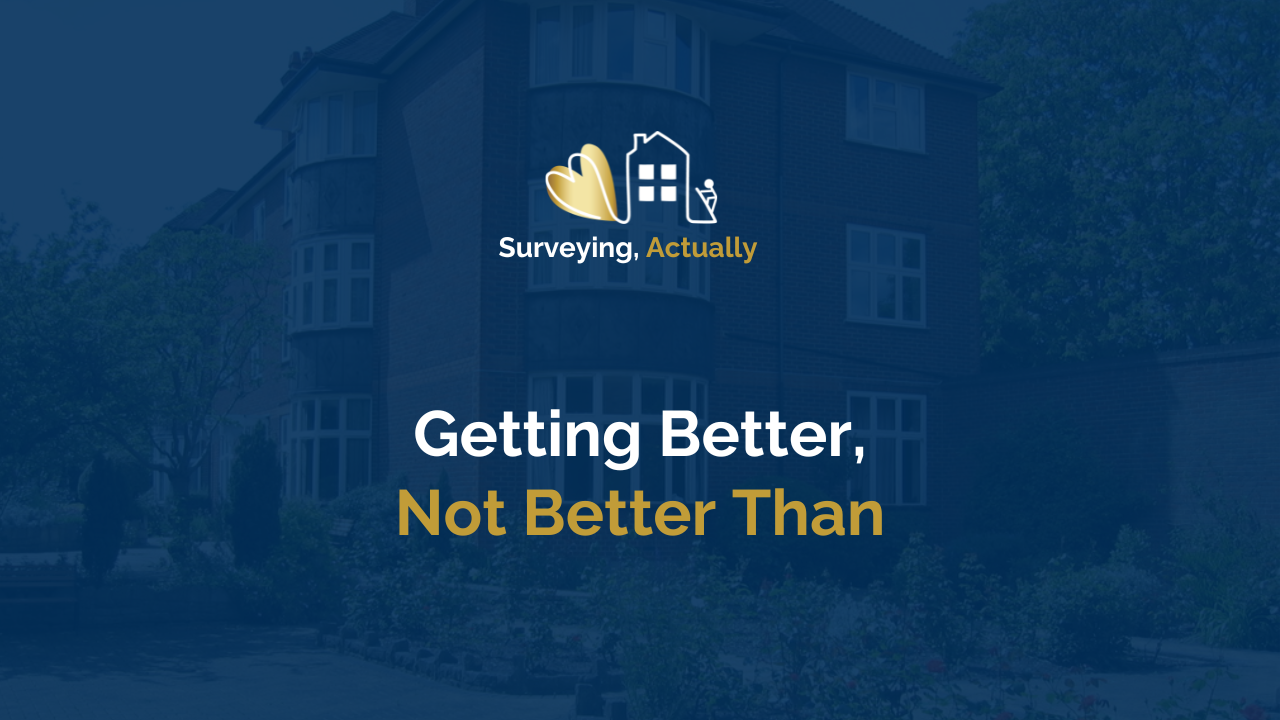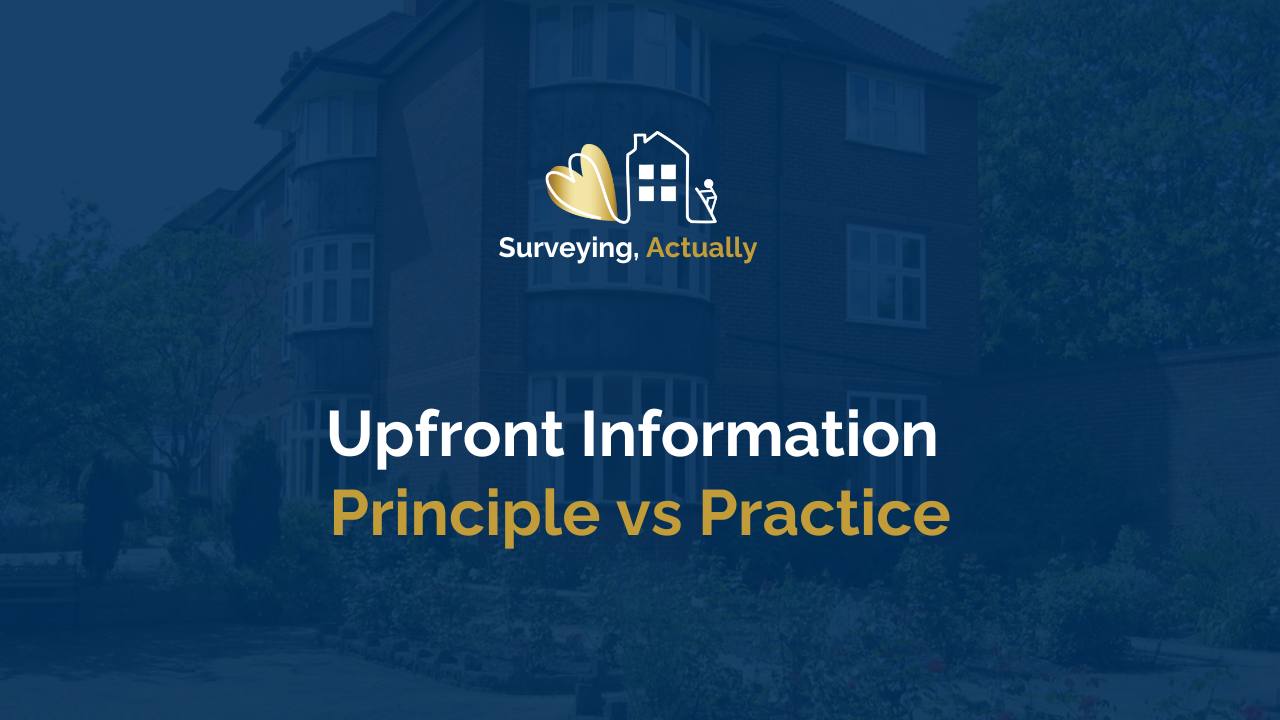Combining Technical Ability with Emotional Intelligence in Surveying
May 05, 2024In this podcast summary, Mark and Marion discuss how surveyors can provide unique added value by integrating emotional intelligence with technical competence, building trust and inspiring confidence in clients.
Listen to The Surveyor Hub Podcast Here.
Mark Duckworth is a Chartered Surveyor and Director at Martin & Mortimer, a firm founded in 1965 at Bishop’s Stortford. Before starting a remedial repair business working with older buildings, his previous roles included agriculture, accountancy, production management, voluntary work, and sales. As a building surveyor with various skills and rich experience, Mark combines a clear understanding of a given building together with an appreciation for his client's particular needs, where the use of emotional intelligence and soft skills such as listening and communicating are considered highly important.
The Human Element in Surveying
As Mark explains, surveying goes beyond delivering reports or identifying defects. It’s about understanding clients—their aspirations, concerns, and needs. Whether assessing a building’s structural integrity or advising on retrofitting a surveyor’s role is to communicate findings in ways that resonate with clients on both logical and emotional levels.
“If you don't just rely on the report, which is obviously important, but if you think about how you are going to communicate all of this knowledge to this person so they get it and they feel that they understand what you're saying, then you're offering real value. You actually are a human talking to another human about something which is incredibly important to them.”
Mark elaborates further on how he wants his clients to feel: “You've read me. You understand me, my aspirations, and you've really nailed this building. Thank you. This is meaningful. That's what we aim for.”
For instance, taking the time to ask probing questions and actively listen to clients helps surveyors tailor their insights to specific client needs. This practice not only reduces misunderstandings but also demonstrates care and professionalism.
The Role of Emotional Intelligence
Mark’s passion for emotional intelligence stems from his belief that understanding human behaviour is critical in surveying. He draws insights from neuroscience, particularly the limbic brain’s role in processing emotions. Recognising that property transactions often trigger stress and anxiety, Mark advocates for surveyors to adopt a compassionate approach.
“You touch my property, you touch me,” Mark says, highlighting the deep emotional connection clients have with their homes. “If you're credible and knowledgeable, and you've read and understood this person, you've got a real captive audience.”
Simple and impactful actions, like acknowledging a homeowner’s apprehension during a survey or offering empathetic explanations, can make clients feel heard and understood. Emotional intelligence and the ability to calm people down is also key in dispute resolution and mediation.
In order to develop better perception and self-trust, Marion then recommends an exercise for newer surveyors to develop sensory awareness:
“Next time you're in a coffee shop, get your coffee, sit down and just listen. You'll hear someone come through the door, the music in the background, the barista doing the fancy coffee, somebody talking in the corner, you'll start to notice the temperature, the smell of the coffee. Even just taking a few minutes to notice those things makes you tune into all of your senses. Also, when you're in a property doing your inspection, just take a breath and notice the dampness, drafts, different things. It’s true that everything we do starts with our technical knowledge, but you've also then got to be able to trust your gut instincts, and to know and follow your senses.”
Leadership, Self-Care and Business Continuity
Mark’s career journey brought him invaluable lessons in resilience and adaptability. After unexpectedly taking over the business after the sudden death of a senior partner, he had to navigate financial challenges and rebuild the business, focusing on people. He underscores the importance of creating an environment that promotes both individual well-being and team success.
“Leadership is about resilience and understanding the needs of your team,” Mark said. “It’s creating a space where people can thrive and bring their best selves to work.”
One of Mark's most poignant lessons is the importance of business continuity. After experiencing burnout that left his firm vulnerable, he realised the necessity of robust planning and delegation. Surveyors can ensure consistent service delivery even in challenging times by building a robust management structure.
“Prevention is far better than cure,” he advises. “Strong systems and proactive planning make all the difference when unforeseen events arise.”
Inspiring the Next Generation
As a mentor and advocate for the profession, Mark is passionate about inspiring the next generation of surveyors. He believes in empowering young professionals to develop their unique strengths.
“Everyone has untapped potential,” he says. “Our role as leaders is to help others discover and maximise their abilities. There’s nothing more fulfilling than seeing someone grow and succeed.”
By prioritising human connections and emotional intelligence, fostering resilience, and embracing continuous learning and development, surveyors can elevate their impact and define the future of the profession. For those in the field, Mark’s message is clear: Success lies not just in mastering the technical aspects of surveying but also in understanding and supporting the people behind every project.
Enjoy this article? You might also like So Why Are You A Surveyor?
Find my content useful? I'd love to hear your suggestions and recommendations. If you found this article helpful, please share it and show your support by leaving me a Google review, or you can Buy Me a Coffee. Being a small business, it makes all the difference.





